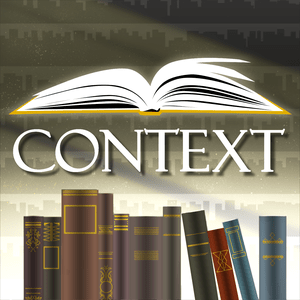Human history is not a smooth story of progress. It is a story of bottlenecks—moments when pressure narrows the field, and when only certain ways of living can carry themselves forward.
In this episode of Context, we explore the idea that AI is creating the next great bottleneck in human evolution.
Drawing on evolutionary biology, deep prehistory, the Black Death, World War I, and modern digital culture, we consider how bottlenecks reshape not just populations, but meaning itself, filtering which values, commitments, and forms of responsibility can survive across generations.
The question before us is not whether humanity survives the age of AI, but which version of humanity does.
To help support the show, access bonus episodes, and listen ad-free, join me on Patreon or subscribe directly through Apple Podcasts or Spotify.


